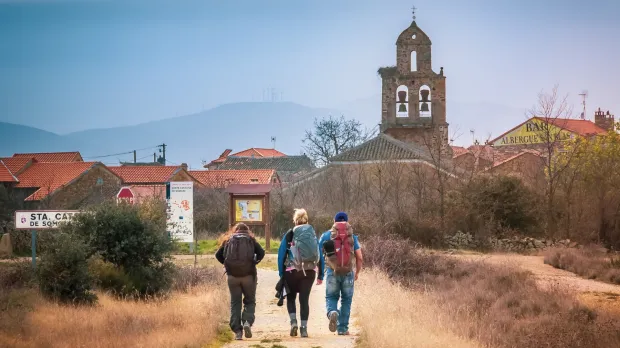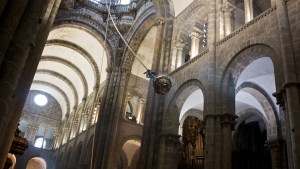The Camino de Santiago, the famed centuries-old pilgrimage route that has attracted pilgrims from across Europe and beyond, is now the focus of a new academic initiative that aims to reflect on European identity and unity.
The “Cátedra de Estudios Europeos Camino de Santiago,” recently launched by the Fundación Pablo VI and the Archdiocese of Santiago de Compostela in Rome, aims to place human dignity at the heart of European reflection at a time of social, political and ethical challenges.
The Camino de Santiago, which dates back to the Middle Ages, has become one of the most important Christian pilgrimages in Europe. For centuries, pilgrims have made their way to Santiago de Compostela in northwestern Spain, where, according to tradition, the relics of St. James the Apostle are kept. The pilgrimage is a religious journey, but it has also played a significant role in shaping the cultural and social fabric of Europe. The Camino has long been seen as a symbol of unity, drawing people from different countries, backgrounds and classes along the same path.
The article published by COPE explains that at the inauguration of the initiative in Rome, Archbishop Francisco José Prieto emphasized the timeless relevance of the Camino.
He described the pilgrimage as a reflection of life itself, where each step brings a person closer to a greater goal, shedding what is unnecessary along the way. Prieto emphasized that the Camino de Santiago can serve as a metaphor for Europe’s current situation, where a focus on material interests and individualism often overshadows the pursuit of a collective good.
“Europe, like a pilgrim, needs to focus on what is essential -– its shared history, values and community,” he said.
A symbol of unity
According to the cátedra’s website, the new center will explore how this pilgrimage, which for centuries brought people from across Europe to one destination, can inspire new conversations about European identity in an era marked by political fragmentation and social unease.
COPE explains that Prieto also pointed out that the Camino is a reminder of how European cultures are interwoven and have historically influenced one another, making it a symbol of the unity that Europe still seeks today.
Jesús Avezuela, director of the Fundación Pablo VI, spoke of the need for Europe to reconsider its founding ideals in a time of technological and geopolitical pressures. In declarations published by COPE, he argued that the European project (based on the values of freedom, justice, and progress) remains crucial. Avezuela believes that the Camino de Santiago can inspire renewed belief in this project, as it represents not only spiritual growth, but also cultural exchange and unity across borders.
This new initiative intends to position the Camino de Santiago as a cultural and academic tool to address the complex issues facing Europe today, promoting dialogue on human dignity, shared values, and the challenges of modern society.



